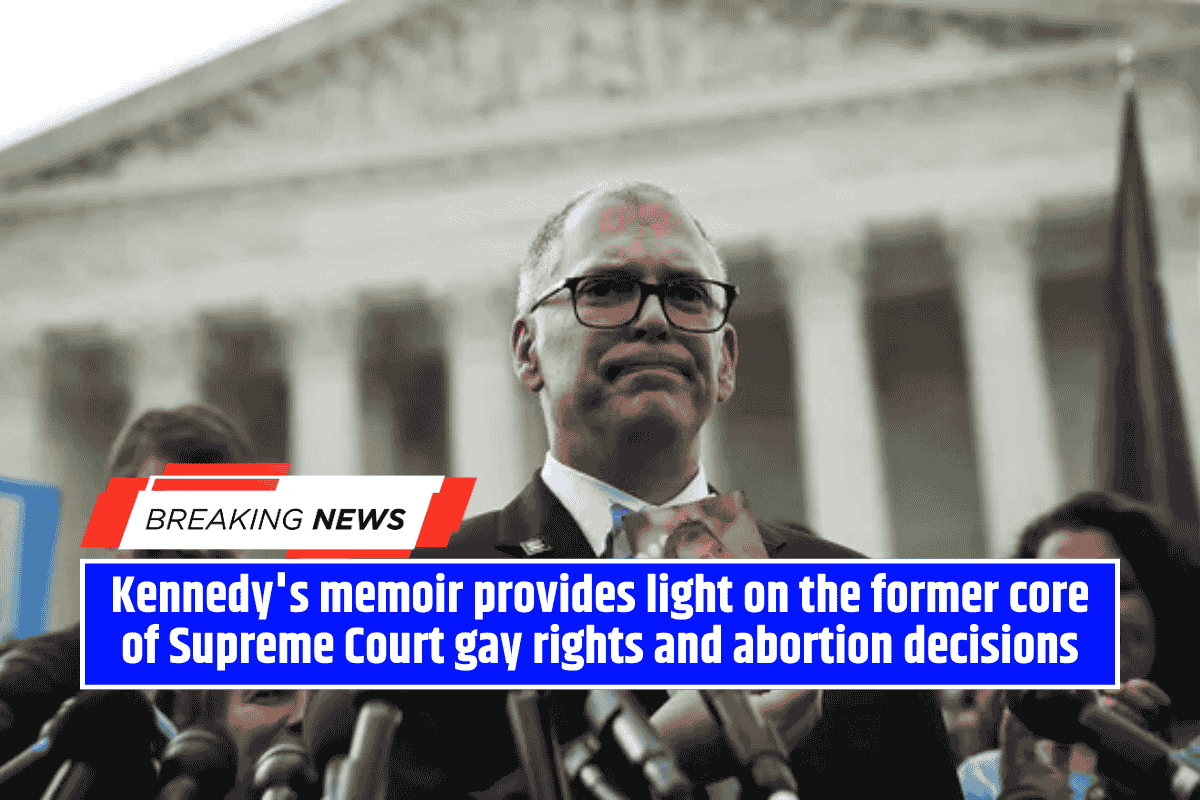Former Supreme Court Justice Anthony Kennedy reveals in his upcoming memoir Life, Law and Liberty that he was stunned by the hostility of some colleagues to his landmark decisions expanding gay rights.
In particular, he recalls the backlash from Justice Antonin Scalia over the 2015 Obergefell v. Hodges ruling that legalized same-sex marriage nationwide.
Kennedy says Scalia’s harsh dissent did not weaken his conviction, but it deeply upset his family. Over time, however, Kennedy and Scalia reconciled before Scalia’s death in 2016.
The Court’s Swing Vote
Appointed in 1988, Kennedy became the ideological center of the Supreme Court, frequently casting the decisive vote in polarizing cases.
He often sided with liberal justices on social issues like abortion, affirmative action, and LGBTQ+ rights, while also authoring conservative-leaning rulings such as Citizens United v. FEC and joining the majority in Bush v. Gore.
Struggles Over Abortion and Judicial Oath
A devout Catholic, Kennedy wrestled with his anti-abortion convictions and whether they conflicted with his judicial responsibilities. He considered resigning but concluded that doing so would undermine the principle of judicial impartiality.
Ultimately, he co-authored the 1992 Planned Parenthood v. Casey decision, which upheld abortion rights while allowing new restrictions.
Kennedy admitted the ruling did not reflect his personal beliefs but emphasized his duty to “honor the rule of law.”
Retirement and the Conservative Court
Kennedy retired in 2018, opening the way for President Donald Trump to nominate Justice Brett Kavanaugh, his former clerk. That move shifted the court firmly to the right, culminating in the 2022 decision overturning Roe v. Wade and Casey. Kennedy does not comment directly on that ruling in his memoir.
Shifting Views on Capital Punishment
Kennedy describes how his thinking evolved on juvenile executions. In 2005, he authored the opinion striking down the death penalty for minors, citing evolving standards of decency and global consensus against the practice.
Crafting the Gay Marriage Decision
Kennedy recalls being deliberate in shaping the Obergefell opinion to elevate the meaning of marriage rather than diminish it. He wanted the opinion to resonate with clarity and humanity, ensuring it could be understood by ordinary Americans.
He was gratified when people told him it passed the “refrigerator test” — passages were taped to refrigerators across the country — and when couples used the ruling’s language in their wedding ceremonies.
Reconciling with Scalia
Though Scalia’s dissent in Obergefell hurt Kennedy, the two justices eventually reconciled. Days before his death, Scalia admitted regret over the tone of his dissent.
Kennedy treasures that moment of reconciliation, writing that he respected and misses his longtime colleague despite their deep disagreements.










